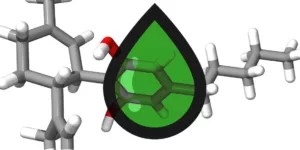To start this off, “CBD” is an acronym for Cannabidiol, which is one of the 400 different cannabinoids found in cannabis plants. Unlike the other cannabinoids, CBD is considered a major phytocannabinoid, as a result, it accounts for roughly 40% of the entire extract of this plant. From past studies, CBD doesn’t show any intoxicating effects and actually has shown many health benefits. More and more people are preferring CBD over it’s infamous sister cannabinoid “THC” because CBD does not cause a “high” and has even shown the potential to counteract THC’s psychoactivity.
The fact that CBD is not psychoactive has made it very appealing to patients, parents, family members, and medical professionals alike. The world is slowly coming to the realization of the need for an organic, all natural cure as chemical treatments and the crookedness of big pharma companies are becoming less and less popular.
Facts of CBD
CBD is mostly used for health purposes and therapeutic contexts. A person can’t “abuse” CBD, as it is simply not an addictive product. It’s extremely important to note that CBD is extremely different from marijuana/weed/THC, despite the fact that they both come from the same parent plant (cannabis). For example, farmers have been breeding marijuana plants with a sole purpose and aim to create strains with the highest amounts of THC possible due to it’s high market demand from recreational users.
However, more and more farmers are now growing hemp plants with the full intention of creating a plant with extremely high CBD levels and with as little THC as possible. Huge CBD manufacturers and retailers are now searching for hemp strains that have the largest amounts of CBD in order to reduce their costs on creating more CBD products.
Here are a couple key facts to know about CBD:
- CBD is LEGAL in the USA ONLY IF the CBD is extracted from hemp plants
- CBD is ILLEGAL in the USA when extracted from marijuana plants
- Reputable retailers and sellers of CBD will have proof of hemp extraction
- Unlike THC, CBD does not give users a euphoria sensation (a “high”)
- CBD products that are made from agricultural or industrial hemp do not violate the Controlled Substances Act
- You don’t need a prescription to buy and use CBD products
- CBD is used by many families around the world because of its therapeutic effects and many health benefits
- CBD has not been proven to “treat” any specific health condition, but multiple medical professional have stated it’s potential and many health benefits
Medical Studies & The Results/Conclusions
- Pain Relief:
“In conclusion… cannabinoids are a modestly effective and safe treatment option for chronic non-cancer (predominantly neuropathic) pain.” - Migraines, Fibromyalgia, & IBS:
“Migraine, fibromyalgia, IBS and related conditions display common clinical, biochemical and pathophysiological patterns that suggest an underlying clinical endocannabinoid deficiency that may be suitably treated with cannabinoid medicines.” - Inflammation:
“Specifically, cannabis extracts (THC & CBD) have shown effectiveness to relief some symptoms of the patients with multiple sclerosis, mainly for pain and spasticity.” - Sleep Disorders:
“The systemic acute administration of CBD appears to increase total sleep time, in addition to increasing sleep latency in the light period of the day of administration.” - Anxiety:
“Studies using animal models of anxiety and involving healthy volunteers clearly suggest an anxiolytic-like effect of CBD. Moreover, CBD was shown to reduce anxiety in patients with social anxiety disorder.” - Epilepsy:
“At this time, there does seem to be a growing body of basic pharmacologic data suggesting there may be a role for CBD, especially in the treatment of refractory epilepsy.”
CBD is showing to provide the above health benefits without the disconcerting high and/or lethargy feelings.
Sources:
- https://cbdoilsandedibles.com/what-is-cbd/
- https://www.dea.gov/divisions/hq/2015/hq122315.shtml
- Pain: http://onlinelibrary.wiley.com/doi/10.1111/j.1365-2125.2011.03970.x/epdf
- Migraines, Fibromyalgia, & IBS: https://www.ncbi.nlm.nih.gov/pubmed/18404144
- Inflammation: https://www.ncbi.nlm.nih.gov/pmc/articles/PMC3085542/
- Sleep Disorders: https://www.ncbi.nlm.nih.gov/pubmed/23343597
- Anxiety: https://www.ncbi.nlm.nih.gov/pubmed/22729452
- Epilepsy: https://www.ncbi.nlm.nih.gov/pmc/articles/PMC4189631/








